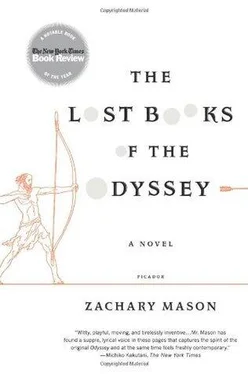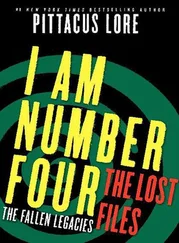“Ten years is ten years, no matter how you cut it,” said one, brandishing a cooking knife. “You can interpret all you like but the facts are inescapable.”
“Mere simple-minded literalism,” said another, using a ladle to stir a tarnished copper pot on a tripod all but swallowed by the flames. “If it said he was to be brave like an eagle, would you have him plucking mice out of fields and climbing a tall tree to sit on a nest of sticks and guard an egg? It is understood to be a guideline, an indication to be fleshed out as required by the details of the situation, and not an exact recipe…”
“It is exactly a recipe, only far more binding,” said the first in a voice like a fast, cold wind.
“… unless you’re a blockhead,” finished the second.
“Blockhead yourself, Miss I-shall-do-as-I-please-for-it-is-only-a-guideline,” said the first. “I beg your pardon most humbly, great Madam. I never meant to imply that one as august as yourself should be obliged to be bound by the iron chains of necessity.”
“Tut. There is some room to move within those chains, and I say he has suffered enough,” replied the second.
“He has not begun to suffer,” said the third, whom Odysseus now saw was the fairest and most terrible. “If he got home now he would be unmarked. His suffering, as you are pleased to call it, would be the stuff of tales to enliven the winter of his old age, stories for his grandchildren. Fie on you. We will draw him thin and fine.”
It began to hail. The ice stones clamored in the trees and off the stone and the cave filled with echoes.
“Bloodthirsty,” said one, he could no longer tell which.
“Then let none of his blood be spilled. We can hurt him just as much, even worse without it,” said another, cackling, her voice coming from no direction and every direction.
“What then, break his heart?” said another.
“Don’t break him — drain him. Take all his warmth and hope and make him empty as a clear cold night on the top of Aetna.”
“So be it.”
“So be it.”
“What next for him, then?”
“The witch Calypso, in solitude on her island. Her bed is cold and she longs for him, though she does not yet know it, for all that she studies the stars and suspects that the sea will soon bring her a gift.”
“And shall we make her a horror?”
The hail crescendoed and the fire was a red glow of embers. Odysseus gathered his courage (thinking that after all the shadows might only be shadows, the women only women) and in a high, rough voice said, “No, let her be beautiful and as kind as summer.”
“Such kindliness, sister!” said one.
“Not from me,” said another.
“Never mind, and so be it,” said the last. “We have other business to transact. There is death to be dealt in Hyperborea.”
“But do not forget,” said one, as the fire disappeared altogether and the women merged into the shadows, “he is, for all that he is bound by us, allowed just once to direct his fate, though I for one shall not seek his counsel. Let us hope he does not meddle enough to get himself home.”
The high fires on the Trojan shore illuminated the revels of the Greeks, their long shadows writhing behind them. Their ships rode low in the water, heavy with gold and slaves, and their adversaries were in chains or in hell. Odysseus, architect of the victory, watched his comrades stagger triumphantly and lent half an ear to the crying of gulls, hoping to hear Athena. Agamemnon, mouth purple and scabbard flapping emptily, found him and asked why he sat off by himself, to which Odysseus replied that ten years had accustomed him to vigilance. Agamemnon said that the dead would not be arming themselves and if they did, the Greeks had beaten the very gods, so come and drink to our victory over the Trojans, the dogs, and may nothing grow in their broken, salt-sown city but weeds and evil rumors. Odysseus said, “The house of Priam is broken, his sons dead. There is nothing left for you to curse.” Agamemnon stood with great dignity, adjusted his breast plate (an ill-fitting treasure looted from the battlefield), and went away.
That night Odysseus dreamt of the ruins and saw the gods rebuilding the city’s shattered wall. Next to him Athena leaned on her spear and watched the work. Odysseus asked why the gods were rebuilding Troy, when some of them, even she, had been at such pains to destroy it. “The gods are not rebuilding Troy,” she said, “as it has not yet been erected.” “Then what are they doing?” asked Odysseus, pointing. She turned her head, recognized him and said, “You should not be here. Run away quick!” Her fear chilled him. Just then the last stone was laid on the city wall; its gates swung open silently and came to with a click.
The next morning the men pushed the grey ships down the beaches into the green sea. As they sailed away the camp’s cold fire pits and abandoned barricades looked as forlorn as Troy’s black husk.
Odysseus’s homeward trip, first joyful, soon became a misery. Fate seemed to have a grudge against him and his Ithacans, sending them in quick succession the cannibal cyclops, the lotus eaters, the sirens, Circe, and inexorable Scylla. A year stripped Odysseus of all his men (gone down to death) and all his ships (torn to flinders or sunk in the sea) and found him clinging to a crude raft as he drifted alone through a bad sea.
Odysseus woke as the water closed over him and thrashed his way to the surface, crying out, though there was no one to hear him. The fog was thick — there was nothing to see but whitecaps and sticks from his raft that sank as he snatched at them. There was no better strategy than striking out hard for land — for all he knew, he would find it. There was not much hope, but it was better than waiting to drown, so he started swimming. He regretted that there were no landmarks and he was, possibly, swimming in circles. His shoulders burned and then his lungs and he was nearly spent when, to his amazement, he drove his hand into something hard that resonated under the blow. He looked up and saw faces peering down at him from a grey ship with a long eye on its prow.
A familiar voice said, “I expected better from you, if only a better escape.” Strong hands pulled him up and dropped him on deck. He lay there thinking that whatever circumstance he had stumbled into, it was bliss to draw breath, feel the ship moving under him and not think of drowning. His eyes were blurry with salt but, rubbing them, he found himself looking at Agamemnon’s golden greaves. “Did you think you could desert so easily, after I went to so much trouble to recruit you?* Can this be Odysseus of labyrinthine mind?”
The sailors, embarrassed on his behalf, avoided looking at Odysseus. He put on dry clothes and realized they had been brought by Alkanor, who had died with a Trojan arrow in his heart the day of Hector’s funeral. The fog was gone, the sun hung in the sky, his heart beat. There was nothing to say.
Agamemnon had the unresisting Odysseus locked belowdecks. After sleeping, he searched the hold and, finding nothing, broke into Agamemnon’s cabin (its lock was contemptible). Among weapons, wine cups and trophies of war he found a book called the Iliad . It was the tale of his war and the gist was right but the details were often wrong. In the introduction he read:
It is not widely understood that the epics attributed to Homer were in fact written by the gods before the Trojan war — these divine books are the archetypes of that war rather than its history. In fact, there have been innumerable Trojan wars, each played out according to an evolving aesthetic, each representing a fresh attempt at bringing the terror of battle into line with the lucidity of the authorial intent. Inevitably, each particular war is a distortion of its antecedent, an image in a warped hall of mirrors.
Читать дальше












